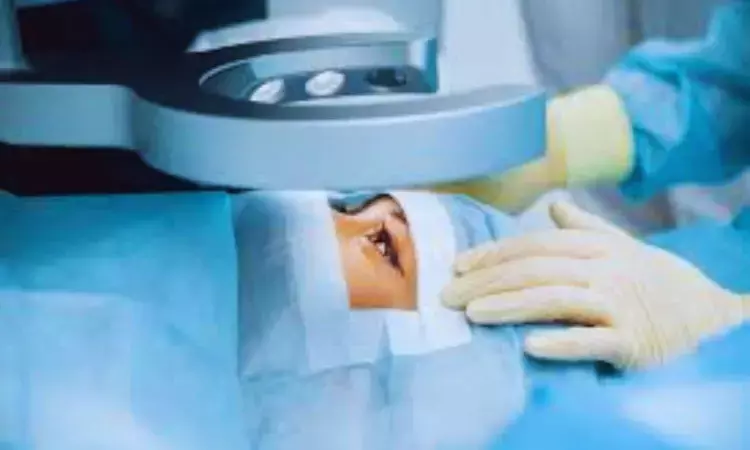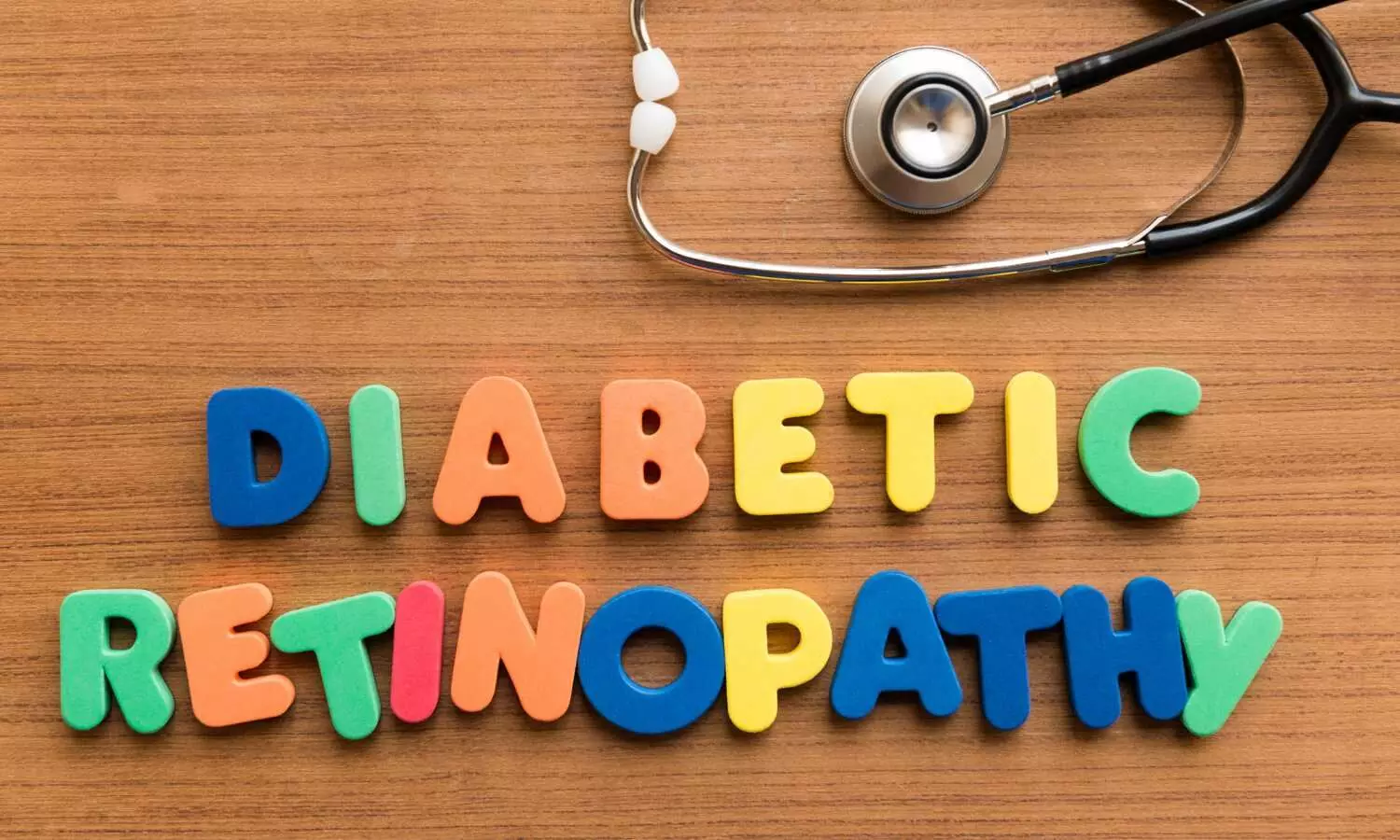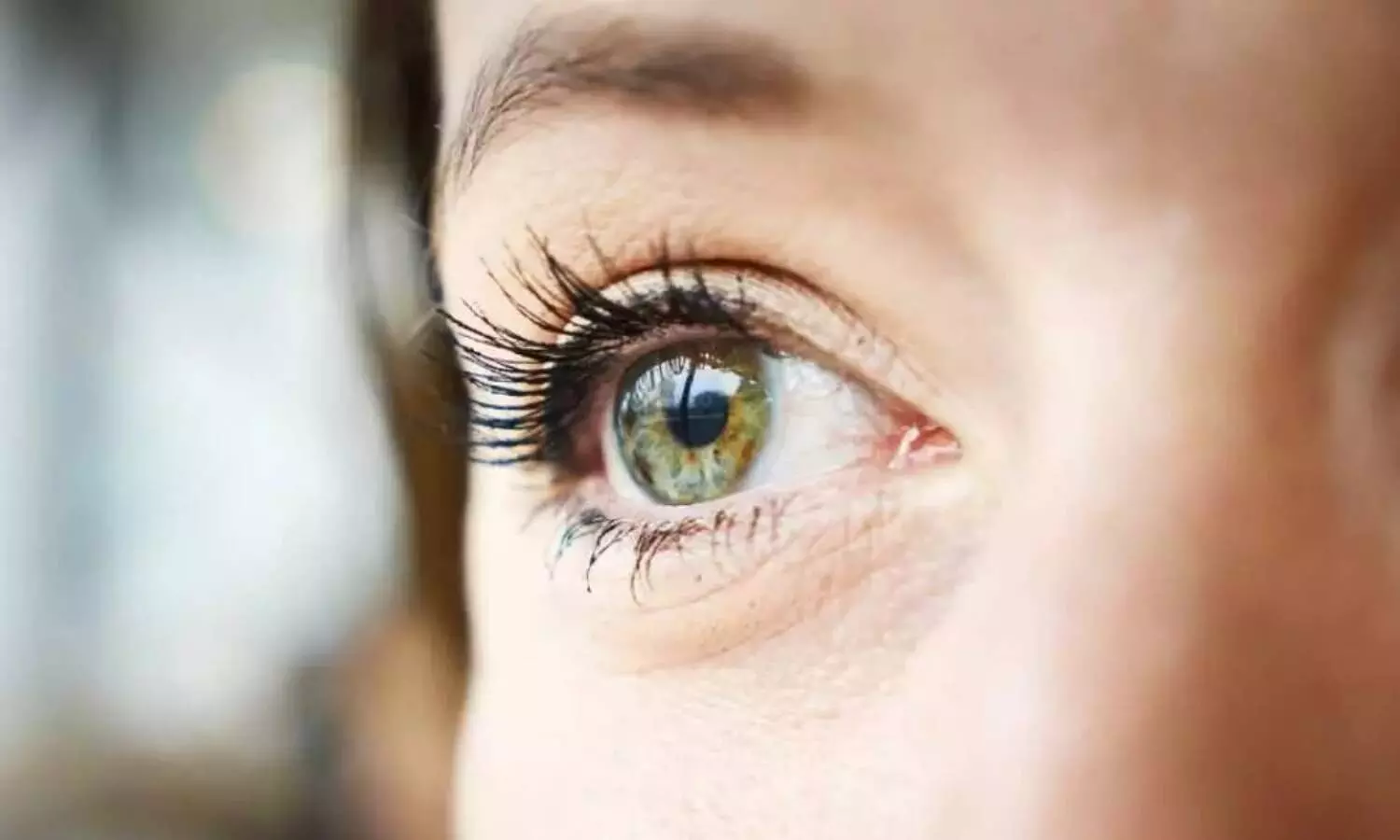- Home
- Medical news & Guidelines
- Anesthesiology
- Cardiology and CTVS
- Critical Care
- Dentistry
- Dermatology
- Diabetes and Endocrinology
- ENT
- Gastroenterology
- Medicine
- Nephrology
- Neurology
- Obstretics-Gynaecology
- Oncology
- Ophthalmology
- Orthopaedics
- Pediatrics-Neonatology
- Psychiatry
- Pulmonology
- Radiology
- Surgery
- Urology
- Laboratory Medicine
- Diet
- Nursing
- Paramedical
- Physiotherapy
- Health news
- Fact Check
- Bone Health Fact Check
- Brain Health Fact Check
- Cancer Related Fact Check
- Child Care Fact Check
- Dental and oral health fact check
- Diabetes and metabolic health fact check
- Diet and Nutrition Fact Check
- Eye and ENT Care Fact Check
- Fitness fact check
- Gut health fact check
- Heart health fact check
- Kidney health fact check
- Medical education fact check
- Men's health fact check
- Respiratory fact check
- Skin and hair care fact check
- Vaccine and Immunization fact check
- Women's health fact check
- AYUSH
- State News
- Andaman and Nicobar Islands
- Andhra Pradesh
- Arunachal Pradesh
- Assam
- Bihar
- Chandigarh
- Chattisgarh
- Dadra and Nagar Haveli
- Daman and Diu
- Delhi
- Goa
- Gujarat
- Haryana
- Himachal Pradesh
- Jammu & Kashmir
- Jharkhand
- Karnataka
- Kerala
- Ladakh
- Lakshadweep
- Madhya Pradesh
- Maharashtra
- Manipur
- Meghalaya
- Mizoram
- Nagaland
- Odisha
- Puducherry
- Punjab
- Rajasthan
- Sikkim
- Tamil Nadu
- Telangana
- Tripura
- Uttar Pradesh
- Uttrakhand
- West Bengal
- Medical Education
- Industry
Combination Therapy Triumphs Over Steroids in Post-op Care of Cataract Surgery

In a comprehensive meta-analysis evaluating the safety and efficacy of postoperative management strategies for age-related cataracts in adults, researchers have uncovered compelling evidence that challenges conventional treatment practices. The study delved into the effectiveness of non-steroidal anti-inflammatory drugs (NSAIDs), corticosteroids, and combination therapies in optimizing patient outcomes following cataract surgery and found that NSAIDs and combination treatments could be regarded as more effective and safer alternatives to corticosteroids alone in the postoperative management of cataract surgery.
The study results were published in the American Journal of Ophthalmology.
The study, conducted using the rigorous PRISMA system and registered with PROSPERO (CRD42022364733), delved into the effectiveness of non-steroidal anti-inflammatory drugs (NSAIDs), corticosteroids, and combination therapies in optimizing patient outcomes following cataract surgery. The meta-analysis incorporated data from nineteen studies, involving 3,473 patients (with 3,638 eyes) who underwent age-related cataract surgery. Among these patients, some were treated with NSAIDs (n=1,479), corticosteroids (n=1,307), or a combination of both (n=687).
Findings:
- A significant advantage was conferred by the combination therapy in terms of best-corrected visual acuity.
- When compared to corticosteroids alone, combination treatment demonstrated a favorable outcome at 4-6 weeks postoperatively, with a mean difference of -0.01 logMAR (95% CI: -0.02, -0.01) and no significant heterogeneity (I2=0%).
- Furthermore, NSAIDs exhibited superior outcomes in reducing flare values when compared to corticosteroids at various postoperative time points.
- On day 7, the mean difference was -9.17 photons/ms (95% CI: -16.52, -1.82), with an I2 of 94%.
- Similar trends were observed on day 14 (MD=-5.23 photons/ms, 95% CI: -8.35, -2.11, I2=94%) and at 4-6 weeks postoperatively (MD=-1.62 photons/ms, 95% CI: -3.03, -0.20, I2=93%).
- Notably, NSAIDs also demonstrated a significant advantage in terms of lower central macular thickness 4-8 weeks postoperatively, with a mean difference of -13.26 micrometers (95% CI: -18.66, -7.86, I2=81%), compared to corticosteroids.
- In addition to these visual outcomes, the study revealed that both NSAIDs and combination therapy experienced a lower incidence of central macular edema when compared to corticosteroids at 4-8 weeks postoperatively, with odds ratios of 0.16 (95% CI: 0.07, 0.35, I2=61%) and 0.21 (95% CI: 0.10, 0.45, I2=31%), respectively.
Thus, this groundbreaking meta-analysis suggests that NSAIDs and combination therapies may represent more effective and safer alternatives to corticosteroids alone for the postoperative management of cataract surgery. Despite these compelling findings, the study also highlights the need for further research to bridge the gap between evidence and clinical practice and to provide a more in-depth comparison of the effectiveness of NSAIDs and combination treatments in cataract surgery care.
Further reading: Haddad JE, Sabbakh NA, Macaron MM, et al. NSAIDs and corticosteroids for the postoperative management of age-related cataract surgery: a systematic review and meta-analysis [published online ahead of print, 2023 Oct 3]. Am J Ophthalmol. 2023;S0002-9394(23)00421-X. doi:10.1016/j.ajo.2023.09.027
BDS, MDS
Dr.Niharika Harsha B (BDS,MDS) completed her BDS from Govt Dental College, Hyderabad and MDS from Dr.NTR University of health sciences(Now Kaloji Rao University). She has 4 years of private dental practice and worked for 2 years as Consultant Oral Radiologist at a Dental Imaging Centre in Hyderabad. She worked as Research Assistant and scientific writer in the development of Oral Anti cancer screening device with her seniors. She has a deep intriguing wish in writing highly engaging, captivating and informative medical content for a wider audience. She can be contacted at editorial@medicaldialogues.in.
Dr Kamal Kant Kohli-MBBS, DTCD- a chest specialist with more than 30 years of practice and a flair for writing clinical articles, Dr Kamal Kant Kohli joined Medical Dialogues as a Chief Editor of Medical News. Besides writing articles, as an editor, he proofreads and verifies all the medical content published on Medical Dialogues including those coming from journals, studies,medical conferences,guidelines etc. Email: drkohli@medicaldialogues.in. Contact no. 011-43720751




